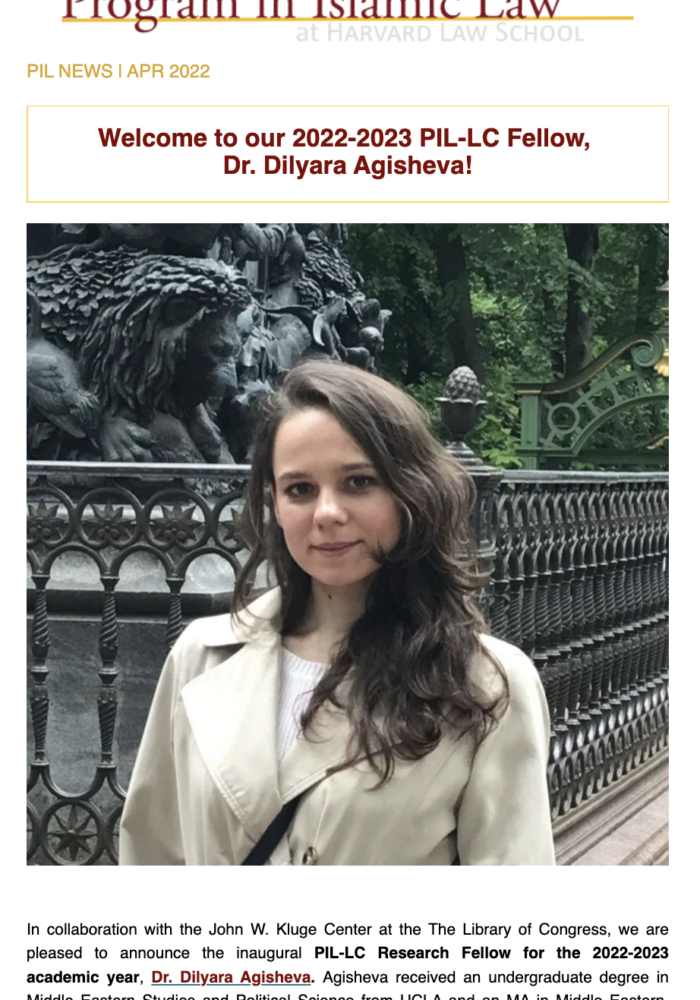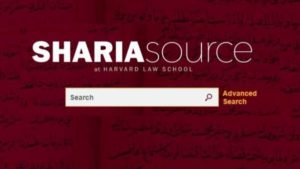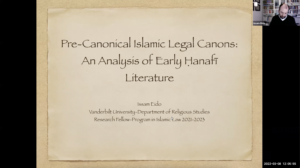
 Welcome to our 2022-2023 PIL-LC Fellow In collaboration with the John W. Kluge Center at the The Library of Congress, we are pleased to announce the inaugural PIL-LC Research Fellow for the 2022-2023 academic year, Dr. Dilyara Agisheva. Agisheva received an undergraduate degree in Middle Eastern Studies and Political Science from UCLA and an MA in Middle Eastern, South Asian, and African Studies from Columbia University. As a PhD student at Georgetown University, she specialized in Islamic legal studies and Ottoman history. In August 2021, she defended her doctoral thesis entitled “Entangled Legal Formations: Crimea Under Russian Rule in the Late Eighteenth and Early Nineteenth Centuries.” This new joint fellowship is designed to provide an intellectual home to promising young scholars in Islamic legal studies, to advance their research, and to contribute to the intellectual life of the Program and greater Harvard community, the Library of Congress community, and the broader scholarly community. As a fellow, Agisheva’s research objective is to prepare a book for publication and to implement OCR software to digitize Islamic court records utilized in her monograph. The book project builds on her dissertation thesis, which explores the transformation of Islamic Crimean legal structures after the Russian Empire annexed the Crimean Peninsula in 1783. The fellowship will allow Agisheva to incorporate additional sources held at the Library of Congress and Harvard Libraries and to benefit from mentorship and collaboration with scholars at the Program in Islamic Law at the Harvard Law School.
Welcome to our 2022-2023 PIL-LC Fellow In collaboration with the John W. Kluge Center at the The Library of Congress, we are pleased to announce the inaugural PIL-LC Research Fellow for the 2022-2023 academic year, Dr. Dilyara Agisheva. Agisheva received an undergraduate degree in Middle Eastern Studies and Political Science from UCLA and an MA in Middle Eastern, South Asian, and African Studies from Columbia University. As a PhD student at Georgetown University, she specialized in Islamic legal studies and Ottoman history. In August 2021, she defended her doctoral thesis entitled “Entangled Legal Formations: Crimea Under Russian Rule in the Late Eighteenth and Early Nineteenth Centuries.” This new joint fellowship is designed to provide an intellectual home to promising young scholars in Islamic legal studies, to advance their research, and to contribute to the intellectual life of the Program and greater Harvard community, the Library of Congress community, and the broader scholarly community. As a fellow, Agisheva’s research objective is to prepare a book for publication and to implement OCR software to digitize Islamic court records utilized in her monograph. The book project builds on her dissertation thesis, which explores the transformation of Islamic Crimean legal structures after the Russian Empire annexed the Crimean Peninsula in 1783. The fellowship will allow Agisheva to incorporate additional sources held at the Library of Congress and Harvard Libraries and to benefit from mentorship and collaboration with scholars at the Program in Islamic Law at the Harvard Law School.
 CONTENT: Islamic Law in U.S. Prisons One aim of SHARIAsource is to provide access to primary and secondary sources of Islamic law to support research on salient issues of Islamic law throughout time and space. We recently added several documents from the Smith v. Crockett et al case. In this case, petitioner Ray Anthony Smith, a Muslim inmate housed in a Colorado state prison, alleged a violation of his federal constitutional right to the free exercise of religion and his federal statutory right to a diet that complies with his faith. Specifically, he alleged that prison officials revoked his right to a halal diet upon observing him ordering non-halal food. Smith initiated this federal lawsuit in 2020 alleging violations of free exercise of religion under the First Amendment of the U.S. constitution and the Religious Land Use and Institutionalized Persons Act (“RLUIPA”). Upon reviewing the record, U.S. Magistrate Judge Nina Y. Wang determined that the petitioner alleged actions that sufficed to make out a basic claim and recommended that government officials should not receive immunity, but denying the remainder of the petitioners requests. U.S. District Judge William J. Martinez adopted the recommendation, ordering its implementation. Explore these documents today!
CONTENT: Islamic Law in U.S. Prisons One aim of SHARIAsource is to provide access to primary and secondary sources of Islamic law to support research on salient issues of Islamic law throughout time and space. We recently added several documents from the Smith v. Crockett et al case. In this case, petitioner Ray Anthony Smith, a Muslim inmate housed in a Colorado state prison, alleged a violation of his federal constitutional right to the free exercise of religion and his federal statutory right to a diet that complies with his faith. Specifically, he alleged that prison officials revoked his right to a halal diet upon observing him ordering non-halal food. Smith initiated this federal lawsuit in 2020 alleging violations of free exercise of religion under the First Amendment of the U.S. constitution and the Religious Land Use and Institutionalized Persons Act (“RLUIPA”). Upon reviewing the record, U.S. Magistrate Judge Nina Y. Wang determined that the petitioner alleged actions that sufficed to make out a basic claim and recommended that government officials should not receive immunity, but denying the remainder of the petitioners requests. U.S. District Judge William J. Martinez adopted the recommendation, ordering its implementation. Explore these documents today! CONTEXT: Islamic Law Speaker Series As part of our Islamic Law Speaker Series, Professor Issam Eido (Vanderbilt University) presented “Pre-Canonical Islamic Legal Canons: An Analysis of Early Hanafi Literature.” He traced the legal canons that were used in early Hanafi sources, beginning with Muḥammad ibn al-Ḥasan al-Shaybānī’s (d. 189/805) works and ending with Abū Zayd al-Dabūsī’s (d. 430/1038) works. These canons, he argues, were evolving and underwent changes that adjusted, polished, or even created a new canon over time. His presentation followed Dr. Hedayat Heikal’s talk titled “Inheritance versus Personal Status: Shifting National Strategies in Syria, Egypt, and Tunisia.” Heikal argued that demands for equality among similarly situated male and female heirs in inheritance cases (among others matters) have taken a confessionalist turn in the Middle East. Whether by legislation in Syria or through court battles in Egypt, non-Muslim citizens of both countries have begun to achieve inheritance equality by yanking inheritance away from the jurisdiction of Islamic default rules and defining it as a matter of personal status. She contrasted Egyptian approaches to inheritance to recent developments in Tunisia. Watch these talks here.
CONTEXT: Islamic Law Speaker Series As part of our Islamic Law Speaker Series, Professor Issam Eido (Vanderbilt University) presented “Pre-Canonical Islamic Legal Canons: An Analysis of Early Hanafi Literature.” He traced the legal canons that were used in early Hanafi sources, beginning with Muḥammad ibn al-Ḥasan al-Shaybānī’s (d. 189/805) works and ending with Abū Zayd al-Dabūsī’s (d. 430/1038) works. These canons, he argues, were evolving and underwent changes that adjusted, polished, or even created a new canon over time. His presentation followed Dr. Hedayat Heikal’s talk titled “Inheritance versus Personal Status: Shifting National Strategies in Syria, Egypt, and Tunisia.” Heikal argued that demands for equality among similarly situated male and female heirs in inheritance cases (among others matters) have taken a confessionalist turn in the Middle East. Whether by legislation in Syria or through court battles in Egypt, non-Muslim citizens of both countries have begun to achieve inheritance equality by yanking inheritance away from the jurisdiction of Islamic default rules and defining it as a matter of personal status. She contrasted Egyptian approaches to inheritance to recent developments in Tunisia. Watch these talks here.
See the full newsletter.

